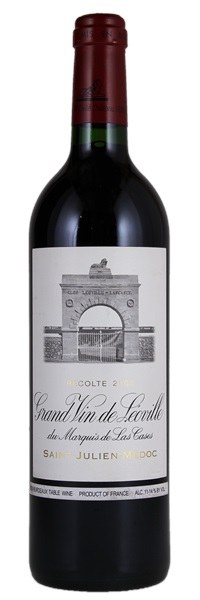Light label condition issue
Removed from a subterranean, temperature and humidity controlled residential cellar; Purchased at retail

Image above is an example. To view the image of the lot, click the item number.
Estimate
Incredible nose of crushed berry, licorice, violets and lightly toasted oak. Pure crème de cassis. Full-bodied, with big, velvety tannins and a long, long finish.
Muscular, deep, and full-bodied...a tight but juicy bouquet of vanilla, black cherries, crushed rocks, and flowers, a sweet attack, and moderately high tannin. Backward and fresh, displaying delineation...
Plum, tar, cedar and nutty oak on the nose. Then massive and full on the palate; almost too big for the mouth.
Quite savoury with a hint of leather.